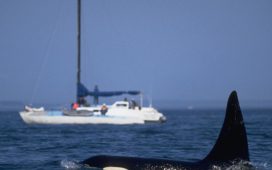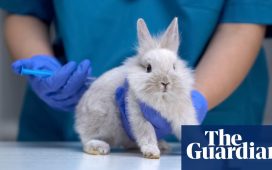The British royal family rather prides itself on its affinity with young people. Perhaps they are seen as mercifully uncritical as well as, in time, potentially well-disposed. Anyway, after Prince Philip, a distant father to his own children, had launched his character-building Duke of Edinburgh awards, Prince Charles followed up with his Prince’s Trust endeavours; now they are joined by both Prince Andrew’s ex, with her “Storytime with Fergie and Friends” promotions and the Duchess of Cambridge (Kate Middleton for anyone with occasional title-blindness), who is going in for early childhood development. The BBC has dutifully stressed Kate’s professional-level seriousness: “She has built up an expertise and wants to prevent the same problems affecting the same families generation after generation.”
Pre-lockdown, for instance, the duchess, on her quest to prevent the same problems affecting the same families generation after generation, spent “over an hour at a daycare in Cardiff, south Wales”. A royal reporter said she “joined in a drawing session with the pre-schoolers and visited an outdoor play area, where she met the centre’s guinea pigs”.
And yes, almost certainly these animals survived the royal visit. To begin with, it was out of season. Plus, with her child welfare hat on, Kate, as much as she enjoys shooting animals, understands that learning to care for and be kind to them is, as the BBC assures parents via Cbeebies, “an experience that children can easily transfer to their relationships with other humans too – it helps to build empathy, understanding and respect for both their peers and adults”.
And learning to chase animals and kill them, as her son Prince George is also doing, age seven? Reports suggest this veteran – he started at five – has again joined his family on a grouse shoot near Balmoral. While the adult behaviour of senior sportsmen, such as Prince Philip and Prince Charles, may offer insights into the long-term impact of such early years exposure, parents who enjoy blood sports can also rely on the Countryside Alliance and the Field for assurance that a “keen shooting family” will reap great rewards from starting young. “The benefits for a young child of spending quality time with mum or dad (or any other relative) in a grown-up setting that is not centred solely around them, are limitless”, according to one Field contributor. While children as young as three or four are old enough to enjoy watching injured birds drop from the sky, “by age five or six”, says the writer, “they could sit at your peg and hold the dog, pick up your spent cartridges or count the birds you shoot”.
Pre-Kate Middleton’s arrival on the child mental health scene, the challenge of reconciling kindness towards animals with a child’s early introduction to animal killing or, by way of preparation, counting bodies at a shoot, was probably most ably addressed by Ted Hughes, the late poet laureate, whose mystic bond specialism naturally found favour in royal circles. Among his tributes to the late Queen Mother, one noted that her patronage of the salmon and trout association made her “also godmother of the salmon itself”.
For civilian parents, however, while there may be no difficulty in differentiating between, say, the appropriate treatment of a royal pony (wordless fellowship) and that of wild boar in the sights of Prince William (blood sacrifice), questions remain about acceptable predation by the very young. Where, mothers will probably be asking Kate, when she is again out and about preventing intergenerational damage, does this leave rats? Ducks? Squirrel Nutkin? How would a pre-schooler put the much-loved Are You My Mother? (in which a fledgling faces various shocks) or Martin Waddell’s thematically similar classic, Owl Babies, in the context of its moorland shooting experience? Has the missing Owl Mother been blasted to pieces in order to preserve grouse numbers, leaving her babies not only orphaned but at the mercy of the relevant gamekeeper, who will, however, be evicted if his landowner’s grouse don’t cooperate?
Since appreciation of the hunter’s special “first-hand communication with the natural world” (Ted Hughes) might defeat the under-12s, the easiest approach to any doubts may be pre-emptively to extinguish them, a longstanding tradition among Kate Middleton’s in-laws. Even allowing for Harry’s apostasy, the royal family has been strikingly successful over generations in, using child-rearing methods that might strike even some religious and political fanatics as on the extreme side, ensuring the continuation of stand-out dynastic traits, from equestrianism to curtseying, stalking, a passion for the military and, when in Africa, charismatic megafauna.
When young people come in such an amenable form, it probably owes less to nature than to intense parental training or, failing that, self-regard. Anyone keen to emulate, for instance, Jacob Rees-Mogg’s cloning programme, revealed in a photograph of five of his children last week, should study a video, also from Mogg enterprises, in which the politician successfully coaches one of his infants to lisp “Brexit” – “good boy!”.
Whether her enthusiastic participation in a similar, though possibly bloodier, programme adds to Kate Middleton’s qualifications as a national child-rearing expert is a question for favoured daycare centres. No doubt some mothers, especially those from keen shooting families, will treasure hints from this advocate of the “good enough royal” approach, on getting children outdoors and counting dead birds before their young minds can be turned by Chris Packham.
From a palace perspective, tales of Prince George’s gun familiarisation have not, to judge by last week’s responses, been the unqualified success it might once have expected and not only among conservationists. If George’s shooting trip briefly eclipsed the latest dirt on Andrew, it was at the cost of reminding a public generally spared similar formative experiences that intergenerational damage takes many forms.
• Catherine Bennett is an Observer columnist












